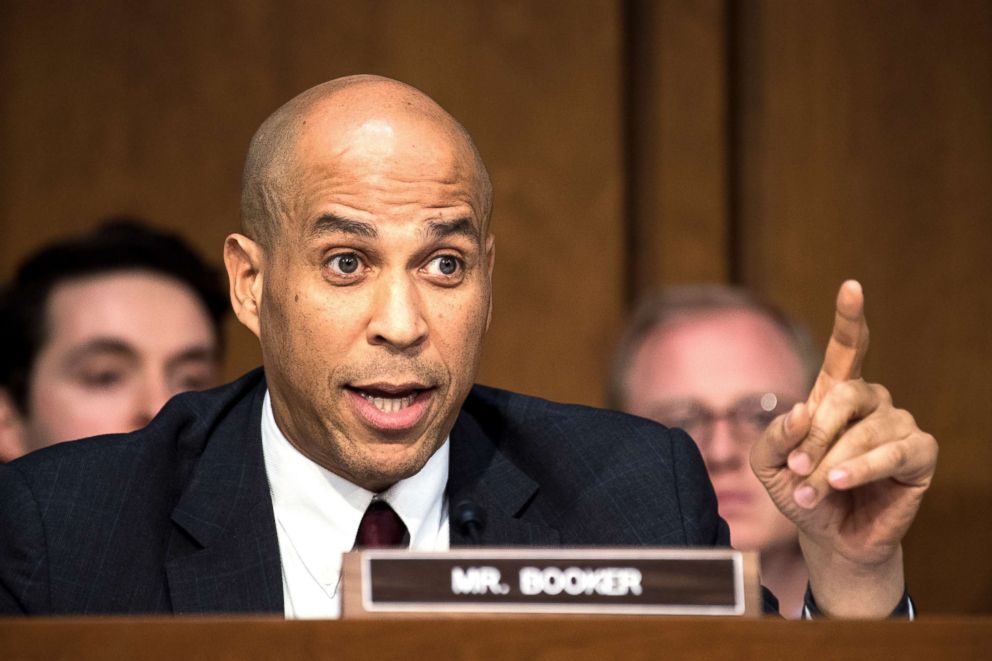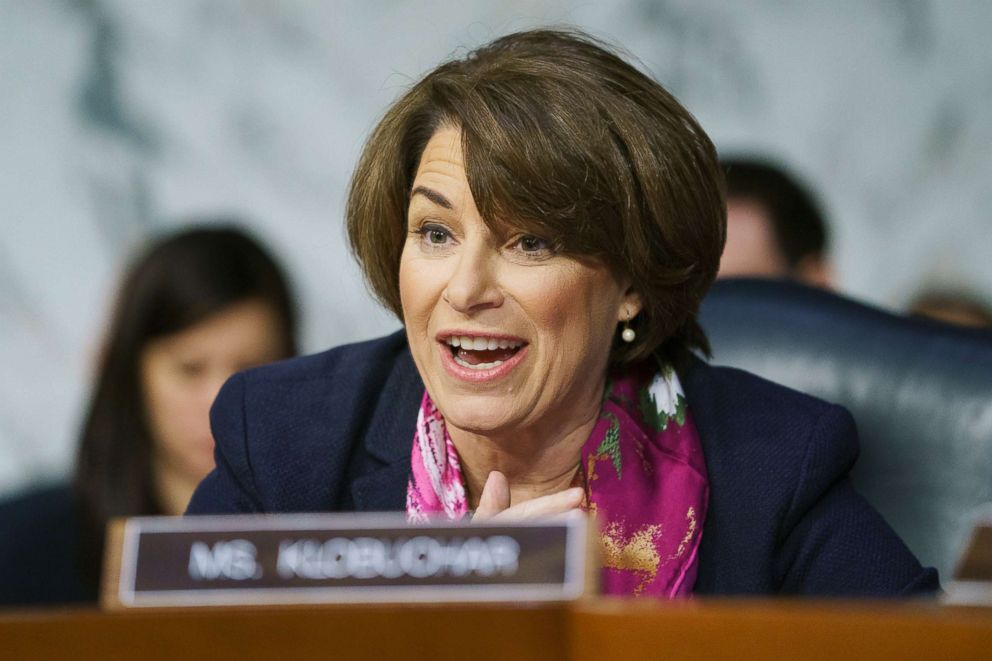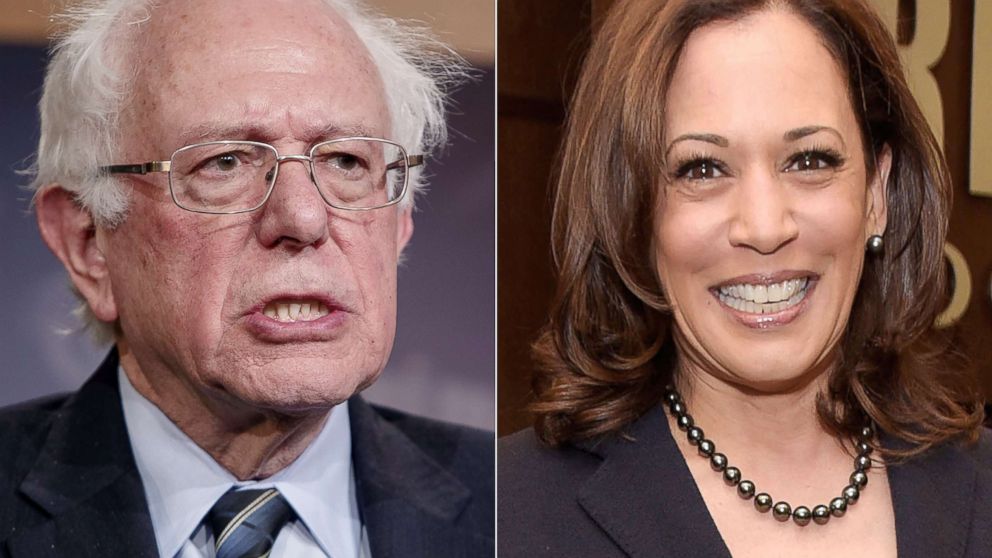For Democratic senators eyeing 2020 bids, confirmation hearings serve as early campaign platform
Vermont Sen. Bernie Sanders was growing visibly agitated with President Donald Trump's nominee to lead the Environmental Protection Agency (EPA) during his confirmation hearing on Wednesday.
"You're addressing?" Sanders asked Wheeler after an answer to a question on the need to reduce emissions from greenhouse gas emissions, "we are the strongest economy in the world, and if the leadership in the environmental protection Agency in the United States says to China and to Russia and to India, and to countries all over the world that we have got to move aggressively to protect this planet for our children and our grandchildren, we can have some impact on the entire international community, are you prepared to do that?"
"I am, we are implementing the laws Congress has passed," Andrew Wheeler, who has served as acting administrator of the EPA since July, responded. Not good enough for Sanders.
"But you are the leader ... will you provide the leadership in this country and the world to say that we are concerned about the future of this planet for our kids and our grandchildren?"
Unable to garner a satisfactory response, Sanders eventually moved on to questions about rising sea levels and devastating wildfires, but the testy exchange and political posturing points to the powerful platform that committee hearings on Capitol Hill give Senators whose presidential ambitions are open secrets.
It's conceivable that as many as eight U.S. senators could mount presidential bids to defeat Donald Trump in 2020.

Already Massachusetts Sen. Elizabeth Warren and New York Sen. Kirsten Gillibrand have announced presidential exploratory committees.
New Jersey Sen. Cory Booker and California's Kamala Harris have both expressed interest in running for president and could announce candidacies in the coming weeks.
Sanders, Minnesota's Amy Klobuchar, Ohio's Sherrod Brown and Oregon's Jeff Merkley have all been posed the question and have not shied away from the possibility of mounting a presidential bid in recent days.
This week some (but not all) of these potential presidential contenders had the chance to question both Wheeler and William Barr, Trump's nominee to be the next attorney general, and they did not pass up the chance to use the spotlight to generate attention.
Booker sits on both the Senate Environment and Public Works Committee and the all-important Senate Judiciary Committee, which questioned Barr earlier this week.
"I'm just wondering, with the mission of the EPA, which is to protect human health and the environment, which you swore an oath to, and to faithfully discharge these duties, yet you seem to be consistently doing things that undermines the health and safety of this nation, the economic well-being of our nation, and frankly putting to further peril not just our country, but the planet," Booker said Wednesday while questioning Wheeler.
"This is of enormous concern that the rate [of carbon emissions] is actually accelerating despite the international conversations," Merkley, an Oregon Democrat first elected to the Senate in 2008, told Wheeler. "I hope you'll become more familiar with these issues our entire ecosystem and our rural agricultural base, which you've been talking about, our fishing, our farming, our forests are at grave risk."
Harris and Klobuchar, both members of the Judiciary Committee, had pointed questions for Barr on immigration, drug enforcement policy, and his potential role in Special Counsel Robert Mueller's probe into Russian meddling in the 2016 election.
Harris, a former prosecutor and attorney general of California who earned praise from Democrats for her prosecutorial questioning of Trump's last nominee to the Supreme Court, Brett Kavanaugh, urged Barr to reconsider the effectiveness of the "War on Drugs," an issue of understated importance to the Democratic base and vitally important to communities of color in the United States.
"I would suggest to you that in the intervening almost 30 years since you were last Attorney General that there is consensus in the United States that when we look at the drug epidemic, whatever the narcotic may be, that there is now an understanding that the War on Drugs was an abject failure," Harris told Barr. "America frankly has a crisis of addiction and putting the limited resources of our federal government into locking up people who suffer from a public health crisis is probably not the smartest use of taxpayer dollars."
Within an hour or so of her questioning, Harris tweeted that she had "reminded Attorney General William Barr that the War on Drugs has been an abject failure."
Klobuchar, who was the top legal officer for Minnesota's largest county for eight years, took a broader approach in her questioning of Barr, asking a question not difficult to imagine her asking on the campaign trail one day.

"There have been times throughout our history, including during Watergate, when the personal interests of the President do not align with the interests of the country. In those critical moments is the attorney general the people's lawyer or the President's lawyer?" Klobuchar asked Barr.
The Minnesota Democrat has not signaled when a presidential announcement could come, but said in an interview on MSNBC's "Morning Joe" this week that her family is "on board" with a Klobuchar candidacy.
Brown, who won re-election as U.S. senator from Ohio last year, does not sit on either of the committees that questioned Trump's nominees this week, but did inch closer to a presidential bid on Tuesday, announcing a "listening tour" that will bring him to the early primary states of Iowa, New Hampshire, Nevada and South Carolina in the coming weeks.




